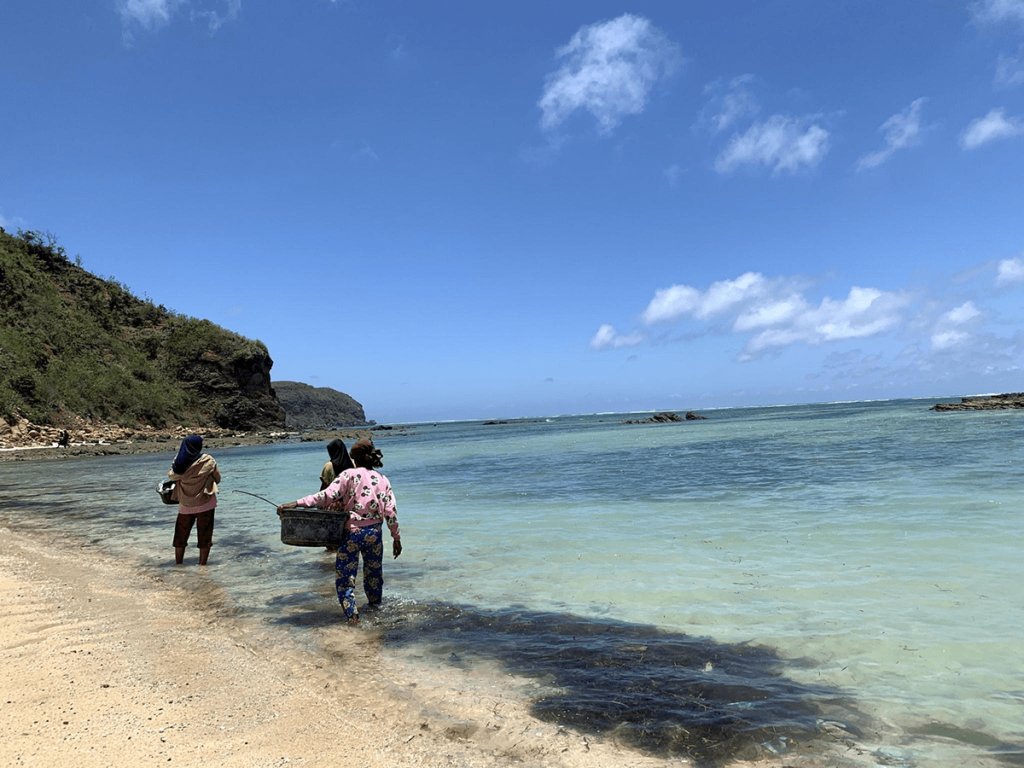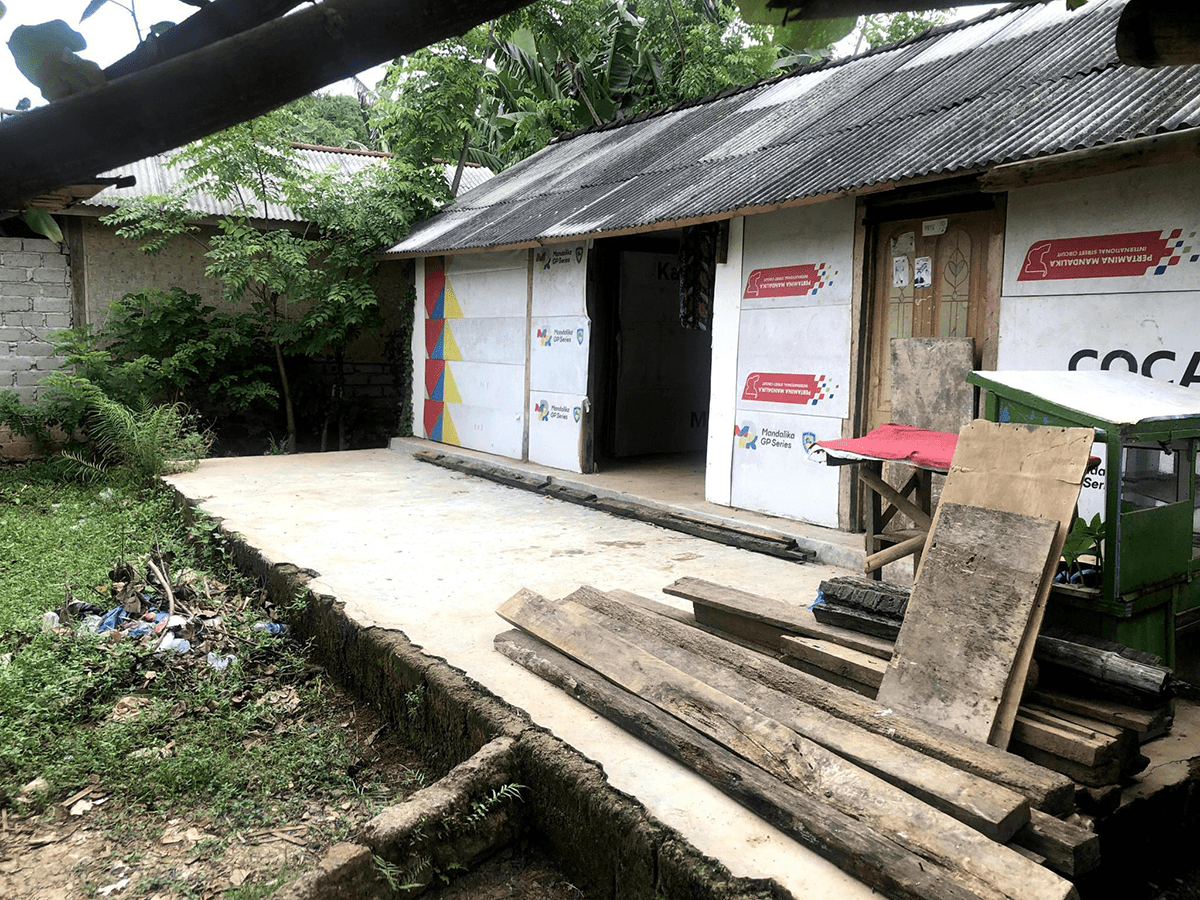For the full statement in Bahasa, please click here.
Mandalika, 20 June 2023:- The Indonesia-based Coalition for Monitoring Infrastructure Development and Asli Mandalika call on the Asian Infrastructure Investment Bank (AIIB) to uphold its commitments for meaningful public consultation and transparency following a failed consultation meeting scheduled with members of the affected communities and NGOs in Mandalika.
Since October 2019, the area’s Indigenous Sasak peasants and fisherfolk have endured a relentless series of aggressive land grabs, forced evictions, and the loss of livelihoods tied to the Mandalika urban development and tourism project, with majority project financing provided by the AIIB.

Prompted by concerns raised by civil society organisations, the bank’s shareholders, and the United Nations regarding the land disputes and crippling poverty of the affected populations, the AIIB planned a long overdue visit to the Mandalika project site in early June. In the days and weeks leading up to this site visit, the bank’s first major site visit since the UN human rights expert issued their third consecutive communication expressing concerns for human rights violations, members of the affected indigenous populations have been subjected to intimidation by the Indonesia Tourism Development Corporation (ITDC), the AIIB’s client leading implementation on the Mandalika project. Community members received warnings from ITDC officials, as well as unnamed Indonesian government representatives to stop engaging with civil society organisations and to instead direct any complaints to the ITDC alone. Indonesian consultants hired by the AIIB who visited the temporary shelter refused to disclose their identities and agenda during their visits, and put the communities under tremendous pressure in what should have been a dialogue-based problem-solving mission.
To ensure the conditions for meaningful engagement, it is the AIIB’s responsibility to guarantee a safe and reprisal-free environment for dialogue and meaningful consultation. This is a crucial step in order for local community members and civil society organizations to freely express their concerns. Additionally, the AIIB should enhance the transparency and accessibility of its field visits by publicly releasing its proposed agenda and schedules in advance in project-affected areas so that project-affected individuals could make the necessary preparations.
During its most recent trip to Lombok, too many mishandled circumstances doomed a rare chance for AIIB delegates to finally encounter real conditions on the ground. On June 17, the last full day of its site visit, the bank’s delegation refused to attend a meeting in Ebunut village, the epicentre of evictions resulting from the tourism infrastructure development, where more than twenty affected community members had gathered to share their testimony. Instead, the AIIB delegation requested for civil society representatives to meet with them at a hotel 6 kilometres away. Since the affected community members did not have transportation to the hotel, the delegation postponed the possibility of hearing from them to a later day.
According to the project-affected communities from Ebunut, Mertak, Sengkol and those facing imminent eviction in the temporary shelter, at no point during the AIIB’s two-week visit to Mandalika did any members of the AIIB’s official delegation make the easy ten-minute drive to see the eviction sites for themselves, nor make time to interact with affected community members suffering from the loss of livelihoods due to the ongoing joblessness, difficult access to the sea, and coercive land confiscations. The absence of any initiative to understand the situation from the perspective of local villagers—the very populations these development projects are purported to benefit—carries its own indictment. Instead, due to its neglectful and evasive actions, the AIIB delegation missed a critical opportunity to hear directly from groups who have endured involuntarily resettlement and other grievances.
Many local community members had made express arrangements so that they could share their stories with the AIIB. One affected woman had labored to secure childcare for her younger sister so that she could attend the meeting. Other villagers missed a day of collecting shellfish and shrimp at the shoreline, resulting in lost income, because they had wished to speak with the AIIB. Some have openly questioned whether the bank really wants to understand the local impacts of the development project they are funding.

In light of this botched attempt, the AIIB must renew commitments to visiting affected areas in order to gather the perspectives of vulnerable groups, through outreach discussions with women, young people, vulnerable people such as the elderly, as well as those who have been involuntarily resettled.
In line with the bank’s own Anti-Reprisal Statement, it must ensure an environment free of reprisals, given the ongoing intimidation of project-affected people by government officials, intelligence officers, and security forces.
The AIIB must also publicly release a schedule for their visit so that communities receive advance notice of public meetings with the bank, which should be open to all project-affected people and provide interpretation to Sasak language.
Due to the persistent and systemic issues in Mandalika, the AIIB should suspend its financing of the Mandalika project until:
- The ITDC and Government of Indonesia have excluded elements of state security including the military, police, and intelligence from any future land acquisition, project implementation, or land dispute resolution process.
- All land acquisition issues are adequately resolved by providing adequate compensation reflecting the market value of the land and property lost, as well as the loss of income from crops and natural resources. Particular attention must be granted to households that were coerced into ceding their land at below market value and involuntarily resettled, and who are currently completely excluded from the ongoing land dispute resolution process led by the Indonesian government, despite the devastating negative impacts of the Mandalika project on their lives and livelihoods.
- The ITDC and Government of Indonesia have provided remedies to affected populations for the negative socio-economic impacts and human rights violations linked to the Mandalika case.
- The ITDC and Government of Indonesia have effectively resolved issues relating to involuntary resettlement.
On the AIIB delegation’s last day in Lombok, after the attempted meeting’s window had passed, a bank representative offered to arrange a “meaningful discussion” involving affected community members “with sufficient lead time for our next in-person visit.” Despite the frustrations and disappointment of this failed meeting, we are eager to accept this gesture and reschedule an opportunity to gather as soon as possible. The villagers and indigenous populations of Mandalika have been denied their right to be heard for too long.
The Indonesian Coalition for Monitoring Infrastructure Development
Aliansi Solidaritas Masyarakat Lingkar Mandalika (ASLI Mandalika).
Aliansi Gerakan Reforma Agraria (AGRA) NTB
Front Mahasiswa Nasional (FMN) Mataram
Lembaga Study dan Bantuan Hukum (LSBH) NTB
Lembaga Bantuan Hukum (LBH) Mataram
Pusat Studi Pembangunan dan Kesejateraan Masyarakat (PUSAKATA) Indonesia
Wahana Lingkungan Hidup Indonesia (WALHI) Sulawesi Selatan
Just Finance International (JFI)
Satya Bumi
Wahana Lingkungan Hidup Indonesia (WALHI) Jawa Barat
Indonesian Global Justice (IGJ)
Institute for National and Democracy Studies (INDIES)
Rasamala Hijau Indonesia (RHI)
Both ENDS

